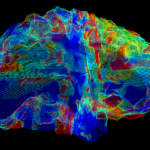People affected by the COVID-19 pandemic were more likely to exhibit anxiety, depression, and psychological trauma during the early stages of its spread, new research from the University of Arkansas uncovered.
For the study, researchers at the Arkansas-based university surveyed more than 10,000 adults across the U.S. The objective was to comprehend the sociological and psychological impacts associated with the pandemic.
According to researchers, the most prevalent outcome of the pandemic, based on their study, was fear, a consistent predictor of mental illness during the COVID-19 pandemic.
“What we found is that fear, coupled with a range of social vulnerabilities, consistently and significantly predict a range of mental health outcomes,” the co-authors stated in a news release.
“Additionally, as originally hypothesized, it appears as though individual fear is higher in those places where there is a higher concentration of confirmed COVID-19 cases and/or a higher death rate.”
In a few other studies conducted by the same research team, but published in other academic journals, their findings point to a concern for people at risk of mental health adversities as a result of the pandemic.
For instance, in one of the studies, they concluded that fear and trauma were greatly correlated with people who resided in areas with a high number of COVID-19 cases. In another study, depressive traits, varying from acute to chronic in severity, also correlated with direct exposure to the pandemic.
“Now is the time to learn the lessons about this pandemic. This needs to be a teaching moment for us all. It or something like it will come along again, and we need to be better prepared for it, making sure that science is front and center, and not politics, with a careful eye on who are the most vulnerable and how can we do a better job of protecting them.”


